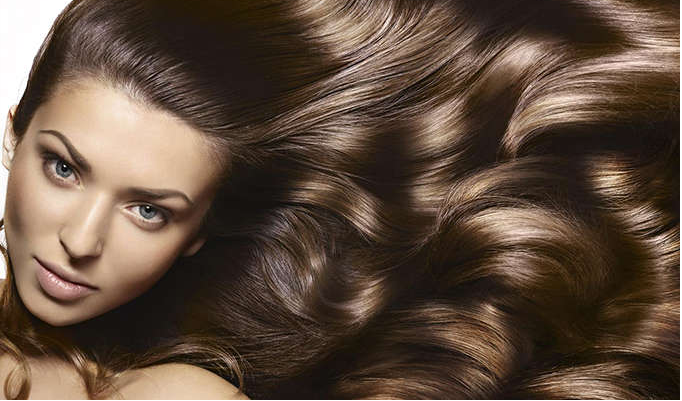Hair it is
While genetics play a key role, your diet, the weather, pollution, and your overall approach to hair care are all critical to maintaining your crowning glory. Find out how a healthy diet and proper care can keep your mane a head above the rest.
PROTEIN
1. Pump up the protein
A well-rounded diet is an important factor in hair and scalp health. Hair is primarily made up of protein, so be sure to eat at least 45 grams of protein daily. Good sources include:
lean meat
poultry
fish
beans
low-fat dairy products
eggs
Diets with inadequate protein can result in weak, brittle hair and loss of hair color, as well as loss of hair itself.
ZINC
2. Zinc about it
Zinc deficiency can cause hair to shed. Incorporate nuts like Brazil nuts, walnuts, pecans, cashews, and almonds into your diet to combat shedding.
Eat and drink an abundance of:
vegetables
fruits
leafy green salads
plenty of clean, filtered water
A multivitamin or zinc supplements can enhance your diet when necessary.
OMEGA-3 FATTY ACIDS
3. Omega your hair nice
Increasing your intake of omega-3 fatty acids may stimulate your hair follicles and sebaceous glands. While this won’t cause your hair to grow, it may improve scalp health.
Omega-3 fatty acids are found in cold-water fish, such as salmon, sardines, and herring. Other good sources include:
flax seed
yogurt
cottage cheese
salad
cereal
PERSONAL PREFERENCE
4. Know thy hair
There are conflicting opinions about how often to shampoo your hair. It all comes down to personal preference and individual needs, which depend on:
your hair type and texture
how often you use hair products
your activity level
For example, people with oily hair may need to shampoo every day, while people with dry hair may need to shampoo less frequently.
SHAMPOO
5. Choose the right shampoo
Using the wrong shampoo and styling agent can cause significant hair damage. Look for products that are right for your hair type — oily, normal, or dry — and target any problems you have, such as dandruff.
Try to avoid shampoos with harsh ingredients, such as ammonium lauryl sulfate or sodium lauryl sulfate. And remember, cost doesn’t necessarily indicate the quality of a product.
CONDITION
6. Get condition-specific
Conditioning after shampooing is an important step in keeping your hair soft, shiny, and manageable. You can choose a separate conditioner or a shampoo with built-in conditioner.
Comb conditioner through for even distribution. Leave it in your hair for two to three minutes before rinsing out.
Just like hair washing, not everyone needs to condition every time they wash their hair. Experiment to find what works best for you.
GROOM CORRECTLY
7. Wash up and brush up
Experts suggest that many people over-shampoo or shampoo incorrectly. The standard rules of thumb are:
Don’t wash your hair more than once a day.
Use only enough of the product to cover your hair.
Avoid using very hot or very cold water.
Treat hair gently when it’s wet — it’s three times more vulnerable to breakage. Don’t rub wet hair excessively with a towel. Use a wide-tooth comb to detangle, but don’t comb too much or brush wet hair.
MAINTENANCE TIPS
8. Hair maintenance tips
Keep these tips in mind for healthy locks:
Start off on the lowest heat setting while blow drying and gradually increase heat as needed.
Allow your hair to air dry whenever possible.
Change up where you place pins and clips so that breakage isn’t localized.
If you dye your hair, choose a shade that’s within three shades of your natural color.
Massage your scalp often to promote hair growth and increase blood circulation.
Get your hair cut regularly — every 10 to 12 weeks — to keep hair healthy and prevent split ends.
THINGS TO AVOID
9. Cut it out
Harsh shampoo, hair treatments, styling products, and excessive brushing contribute the most to poor hair health. However, other culprits include:
overconsumption of alcohol
low-calorie and crash diets
decreased thyroid hormone
excessive stress
blood thinners
some prescription drugs for heart problems, depression, high blood pressure, and arthritis












